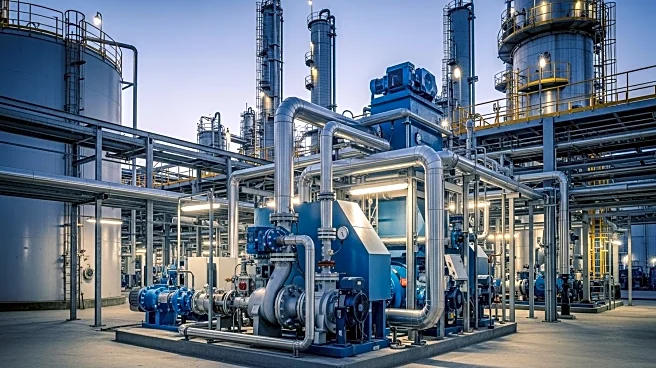What is the story about?
What's Happening?
BASF has commenced the installation of an industrial-scale heat pump at its Ludwigshafen chemicals complex in Germany, aiming to produce net-zero steam for its formic acid production line. The 2,000 m² unit, expected to be operational by mid-2027, will be one of the world's most powerful industrial heat pumps. It will utilize mechanical vapor recompression to convert waste steam into a valuable energy source, powered entirely by zero-carbon electricity. This initiative is part of BASF's broader electrification strategy to achieve climate neutrality, supported by a €310 million investment from the German government.
Why It's Important?
The installation of the heat pump at Ludwigshafen represents a significant step towards reducing carbon emissions in the chemical industry. By leveraging waste steam and zero-carbon electricity, BASF aims to cut emissions from formic acid production by up to 98%, contributing to global climate goals. This project underscores the importance of technological innovation in achieving sustainability targets and highlights the role of government support in facilitating industrial transformation. The success of such initiatives could set a precedent for other industries seeking to reduce their carbon footprint.
What's Next?
As BASF progresses with its electrification program, the company will need to address challenges related to industrial electricity costs. The European Commission's Chemicals Industries Action Plan, which aims to support decarbonization technologies, will be crucial in this regard. The plan includes measures to expand carbon levy compensation and improve grid access for energy-intensive industries. The outcome of these policy measures will significantly impact the feasibility and success of BASF's and similar projects in the future.

















